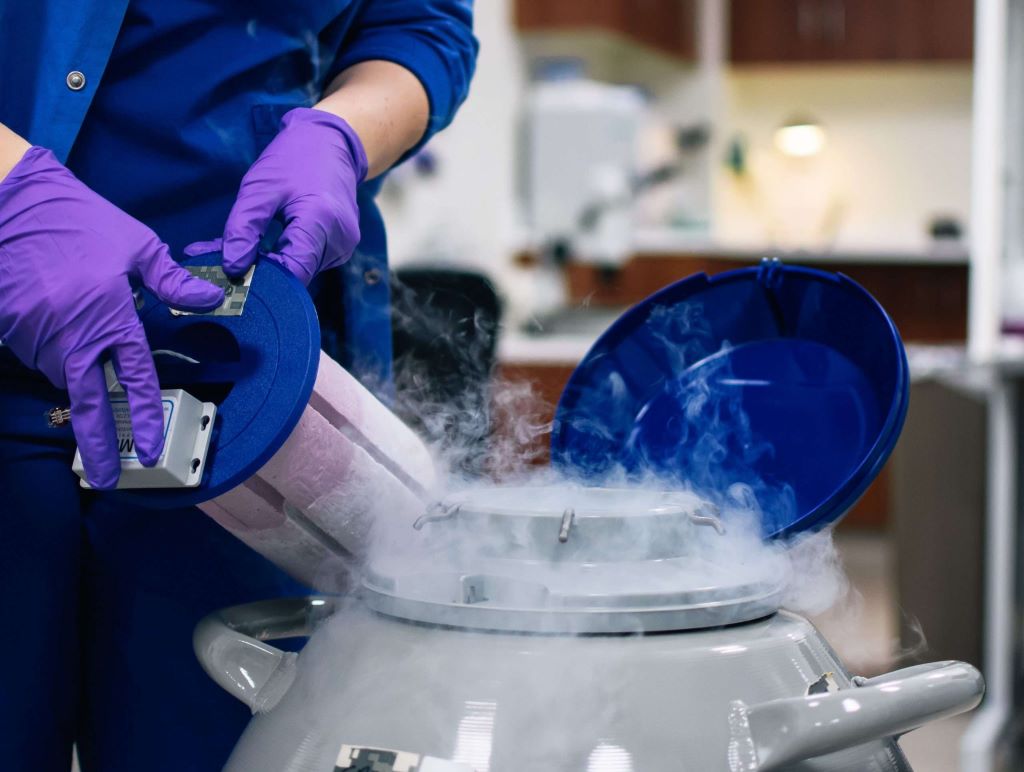
Fertility preservation is a crucial topic for individuals and couples who are facing infertility or who may be at risk of infertility due to medical treatments or lifestyle factors. Fertility preservation refers to the process of storing eggs, sperm, or embryos in order to have the option of starting a family at a later time.
There are several factors that individuals should consider when deciding whether to pursue fertility preservation. Some of the most important considerations include age, medical history, and family planning goals.
Age is a key factor in the decision to pursue fertility preservation. The quality and quantity of a woman’s eggs decline with age, which can make it more difficult to conceive as she gets older. For this reason, many women choose to freeze their eggs in their late twenties or early thirties, when the chance of success is highest. Men, on the other hand, can store their sperm at any age, as sperm quality and quantity typically decline more gradually with age.
Medical history is also an important consideration when it comes to fertility preservation. Some medical treatments, such as chemotherapy or radiation therapy, can damage a person’s reproductive organs and make it more difficult to conceive later on. In these cases, fertility preservation can be a way to increase the chances of having a biological child in the future. Similarly, individuals who have a family history of infertility or who have been diagnosed with a genetic condition may also choose to preserve their fertility as a way to increase the likelihood of passing on their genes to future generations.
Family planning goals are also an important factor to consider when deciding whether to pursue fertility preservation. For some individuals, having the option to start a family in the future is a high priority, even if they are not planning to conceive right away. For others, fertility preservation may not be a top concern, as they may prefer to focus on other aspects of their lives, such as career or travel.
There are several methods available for fertility preservation, including sperm banking, egg freezing, and embryo freezing. Sperm banking is a simple and straightforward process that involves collecting a semen sample and storing it in a sperm bank. Egg freezing is a more complex process that involves retrieving eggs from the ovaries, freezing them, and storing them for later use. Embryo freezing involves fertilizing the eggs with sperm, creating an embryo, and then freezing and storing the embryo for later use.
One of the biggest benefits of fertility preservation is that it gives individuals and couples the ability to control their fertility and make informed decisions about when and if they want to start a family. By preserving their fertility, they can increase their chances of having a biological child and ensure that they are prepared for the future, regardless of what life may bring.
There are, however, some potential risks and limitations associated with fertility preservation. One of the biggest risks is that the stored eggs, sperm, or embryos may not survive the thawing process or may not be viable for use in the future- thankfully, this risk is becoming rare with the advancement of technology and increased expertise in the area. Additionally, there is a financial cost associated with fertility preservation, which can be a barrier for some individuals and couples.
In conclusion, fertility preservation is a critical option for individuals and couples who are facing infertility or who may be at risk of infertility due to medical treatments or lifestyle factors. While there are several factors to consider when deciding whether to pursue fertility preservation, the benefits of having the ability to control one’s fertility and increase the chances of having a biological child in the future are undeniable. By weighing the potential risks and limitations, individuals and couples can make informed decisions about their family planning goals and ensure that they are prepared for the future.
Written by Dr Christine Schembri Deguara.





